Venezuela marks 140 years of the first Lourdes pilgrimage in the Americas
The pilgrimage was instituted in 1884 by Fr Machado, the Venezuelan priest in the Diocese of La Guaira, after returning from a trip to the famous shrine to Our Lady of Lourdes in France. Tony Pereira, a lay member of the current organising committee, spoke to Aid to the Church in Need (ACN) about the […]
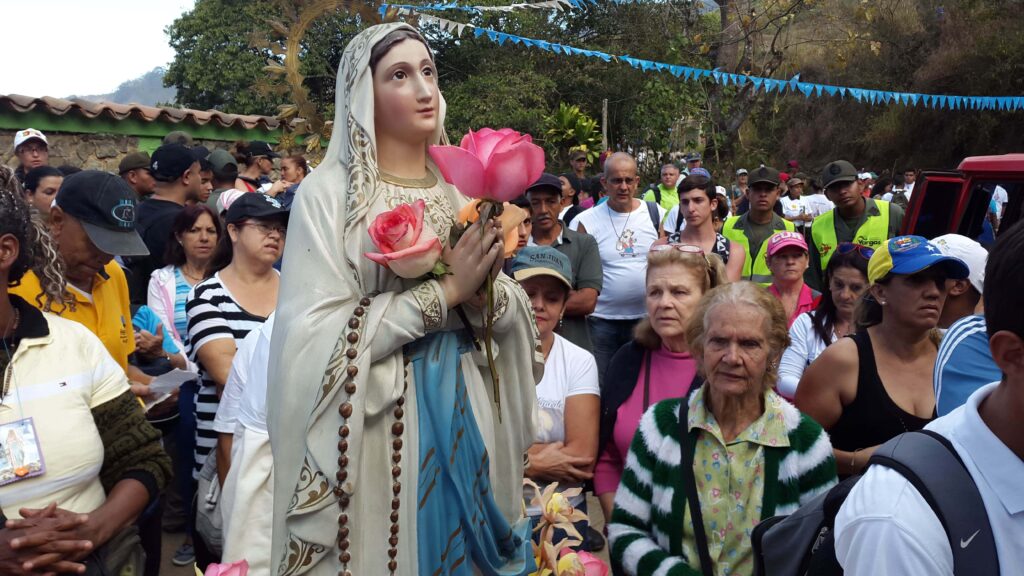
The pilgrimage was instituted in 1884 by Fr Machado, the Venezuelan priest in the Diocese of La Guaira, after returning from a trip to the famous shrine to Our Lady of Lourdes in France. Tony Pereira, a lay member of the current organising committee, spoke to Aid to the Church in Need (ACN) about the origins and the importance of this devotion.
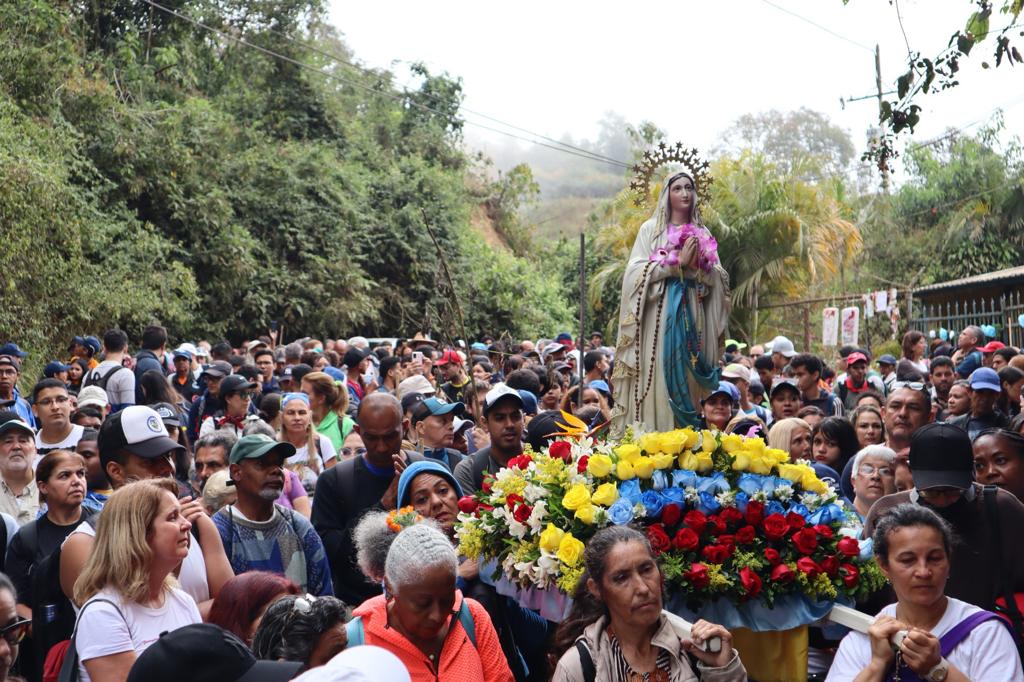
Every year, in early February, the El Ávila mountain in Venezuela becomes the backdrop for a unique trail, as hundreds of people accompany the image of Our Lady of Lourdes, carried on the shoulders of devotees in a procession that begins in Puerta Caracas in the capital district and ends in La Guaira. The 20-kilometre-long pilgrimage follows a route called Camino de los Españoles, or Way of the Spaniards, which climbs over 1,500 metres, before dropping down to sea level.
There are 14 stations along the route, representing the Way of the Cross, and the final destination is the church of Saint Sebastian in Maiquetía, where there is a replica of the grotto where Our Lady of Lourdes appeared. A solemn Mass is then celebrated in her honour.
Tony Pereira’s family is closely connected to the history and origins of this initiative. “My great-grandmother was part of the organisation of the first pilgrimage, and for many years she helped Fr Machado with this. My uncle Victor also dedicated many years to clearing the trail, all the way up the mountain, so that the image of Our Little Virgin could pass; and since the age of 10 I would take water and food to him, as he stayed in the mountain for days at a time.”
Tony himself has been performing the pilgrimage since he was three months old. “There are photographs of me being carried along”, he says, his voice tinged with emotion. “I am encouraged by love for Mary, in the title of Our Lady of Lourdes, and I thank God for allowing me to accompany Our Heavenly Mother in this pilgrimage every year.”
A tradition kept alive despite challenges
“It all began when Fr Santiago Florencio Oyarzábal Machado made a trip to the Shrine at Lourdes in 1882. The pilgrimage made such an impression on him that when he returned, he built a replica in the grotto of La Guaira, with the help of members of his community”, says Tony Pereira. “I have been on the organising committee for 38 years, and I can say that my devotion keeps increasing. God keeps the flame of faith alive in us, and gives us the strength to do the pilgrimage.” According to him, this is considered “the first replica of Our Lady of Lourdes in the Americas, which arrived only 25 years after the apparition in France”.
The image was blessed on 8 February 1884 and soon devotion at the grotto began to attract pilgrims from all over Venezuela, who would crowd the streets, to the point that some people had to sleep outdoors.
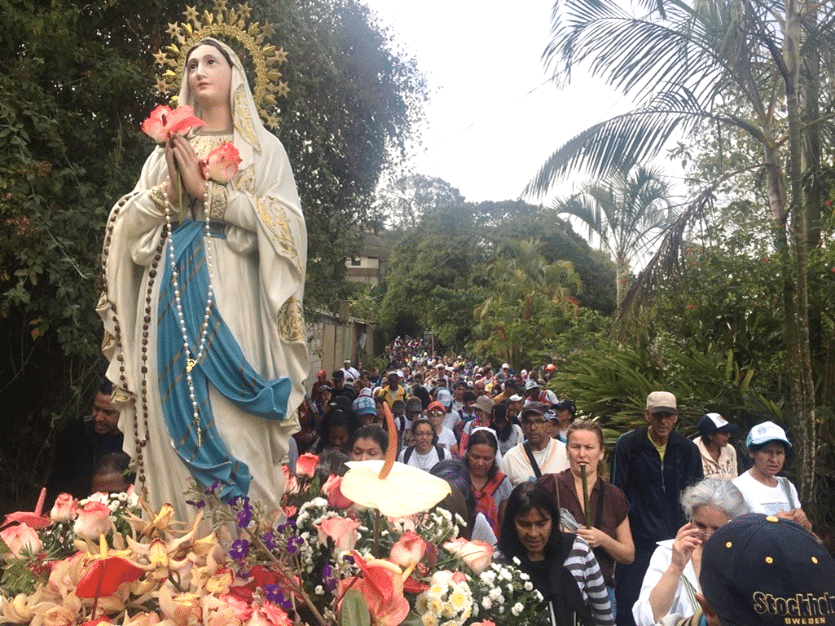
Since then, this pilgrimage, which is celebrating its 140th anniversary, has taken place almost uninterruptedly, despite a variety of difficulties, including political and social conflict, and natural disasters. It was only cancelled twice, during the disturbances and looting that took place in Caracas in 1935 and 1989.
“In 2021, during the Covid pandemic, the Virgin was driven around in a car, with loudspeakers, so that the people could come out on to their balconies and pray”, says Fr José Martín Vegas, the parish priest of San Sebastián. “During my years as parish priest I have come to feel a sense of belonging to this organising group, to the point that not even the Vargas disaster led us to cancel it, even though from a merely human and institutional viewpoint it would have seemed the appropriate decision”, he tells ACN, recalling the floods and landslides in Vargas, a terrible natural disaster that caused thousands of deaths in 1999.
Devotion renews the Faith in Venezuela
Tony Pereira is moved by the devotion with which people ask for the intercession of the Virgin Mary for themselves and for their families. “Many people have come up to me to speak about the graces bestowed by Our Lady of Lourdes”, he says, recalling stories of women who were unable to have children but, after entrusting themselves to Mary during the pilgrimage, managed to conceive. “Some of them, deeply moved, presented their children to me and told me that they thought they would never have them, but after the pilgrimage they were blessed.”
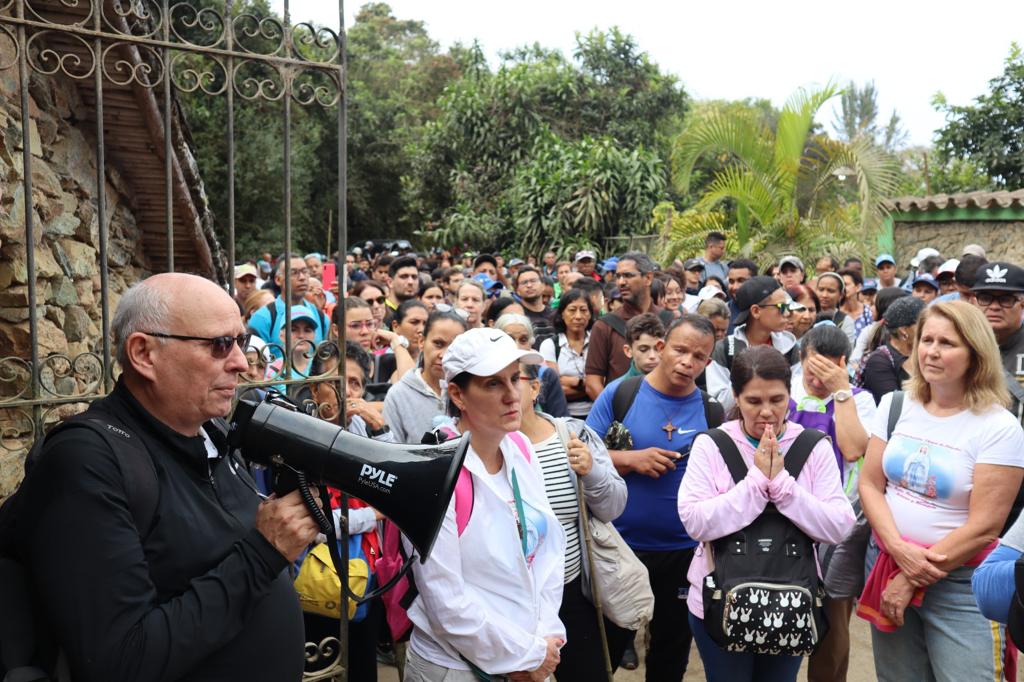
He has also felt the help of Our Lady, following several “heavy blows” that life has dealt him over the years, such as the death of his parents, problems with his own health and the loss of a son, who was murdered by a criminal. “Our Lady of Lourdes has kept me standing all these years, she has always helped me to overcome these difficulties.”
The yearly celebration is generally presided over by the Bishop of La Guaira. Speaking to ACN, Bishop Raúl Biord, who has been in office since 2013. “Walking along the mountain is a reflection on life, because sometimes there are highs, and sometimes there are lows. It is a symbol of what we are as a Church, a people walking along sinuous and dangerous paths”, he tells the foundation. “A Christian undergoes a pilgrimage with faith, carrying with him his hunger, fatigue, exhaustion. And then there are treacherous stones along the way, which can cause one to trip and fall, but when that happens, you have to get up and carry on.”
“We carry the image of Our Lady on our backs, and sometimes life is a struggle we have to bear as well, but that is the weight of life, of our loved ones, and of the poor”, the bishop explains. “But what is beautiful is that we forge friendships along the way, and that too is life. Nobody is alone, as Pope Francis reminded us in his encyclical Fratelli Tutti.”
Related

The Spirit led him through the desert, while he was tempted: Fr. Jorge Miró
Jorge Miró
09 March, 2025
3 min
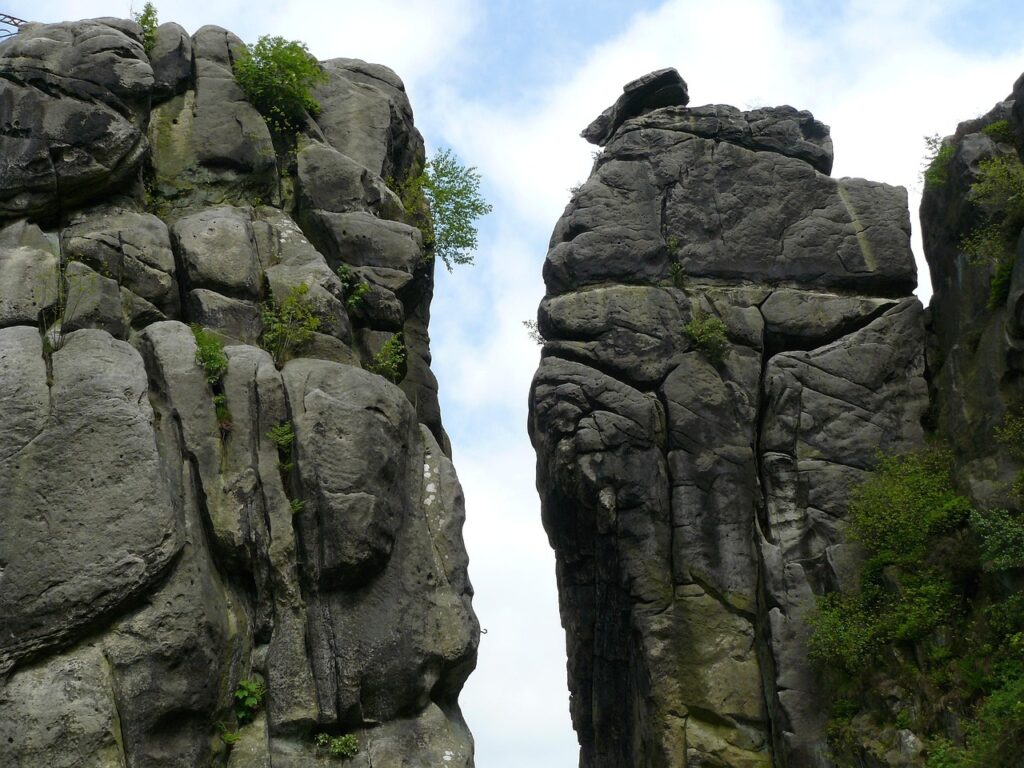
Reflection by Monsignor Enrique Díaz: Temptations
Enrique Díaz
08 March, 2025
6 min

The Church in Mexico calls to promote the culture of life in the Jubilee of Hope 2025
Exaudi Staff
06 March, 2025
1 min
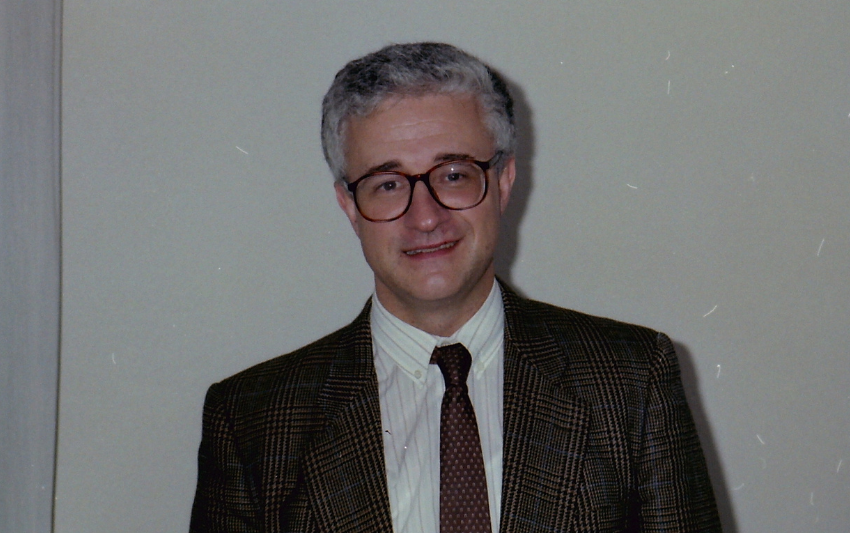
Javier García de Jalón: A life that left a mark
Mar Dorrio
06 March, 2025
3 min
 (EN)
(EN)
 (ES)
(ES)
 (IT)
(IT)

